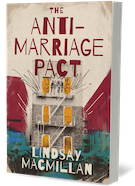Notes: Open Book As Cultural Magnet; Local Debate
The real estate section of today's New York Times writes about the turnaround in the part of Minneapolis, Minn., where Open Book opened its unusual, 55,000-sq.-ft. facilities in 2000: the once seedy area now is thriving as "a steady flow of arts organizations have followed" Open Book, including the Guthrie Theater, the Mill City Museum, the MacPhail Center for Music, Minneapolis Central Library and small theaters and art galleries. In addition, some 1,000 new residences have been built.
"We know for a fact this was the first real estate home for the literary arts in the nation," Liz Petrangelo, chairwoman of Open Book, told the Times. "We don't know if anything like it has happened since, but we get calls from all over the country asking how we did this."
Open Book is comprised of the Loft Literary Center, which offers writing classes, space for writers and readings; the Minnesota Center for Book Arts, which provides equipment and space for people to work in letterpress printing, hand bookbinding and papermaking; and the offices of Milkweed Editions.
---
"My first year, it started off slow and then it went very well,"
Heather Lambert, owner of the Book Attic & Paperback Exchange,
Portage, Ind., told the Post-Tribune. "I'm so excited. Having a bookstore has always been my dream--I love being here."
---
Where is your local bookstore? The Southwest Voice's blogger tgr Jams
tackled the "local" issue by recounting his exchange with a customer
about an order he almost lost "because they wanted to go with the
'local bookstore.' Now, if you've read my profile, you'd know that I'm
with Barnes & Noble, and we've been in Bakersfield now for almost
ten years. So, I countered with . . . 'uh . . . aren't we local?' Last
I checked, I go to work in Bakersfield."
One reader commented
that "the store should be referred to as 'your local Barnes and Noble
store.' Every brick and mortar store has a location, so it is local
somewhere. But 'local' is not the term which should be at issue here.
The term is 'locally owned.'"
Which, naturally, generated further discussion.
---
Mommy, please play me another story! According to the Associated Press,
"Don Katz has a vision for the kids of America: He wants to take the
technology that brings the Jonas Brothers to their ears and use it to
deliver the Brothers Grimm. . . . In March, the Audible.com founder
launched AudibleKids.com, where children can download books directly
onto their digital audio players."
Said Audio Publishers
Association president Michele Cobb: "I hear lots of people talking,
saying that when they put their kids to bed, they put them down with an
audiobook."
But Susan Linn, author of The Case for Make Believe: Saving Play in Our Commercialized World, countered, "In a way, this is another gadget for outsourcing parenting."
---
Borders will open another new concept store, in July in Tukwila, Wash., near Seattle, one of 14 new concept stores Borders is opening this year. The 26,368-sq.-ft. store will be in the Westfield Southcenter Mall, located at Southcenter Parkway and Strander Boulevard.
---
Here's another story of a scam perpetrated on a bookseller, told from the point of view of the author whose name and identity were taken in vain. See the blog on Powells.com.
---
William W. Warner, who wrote Beautiful Swimmers, a study of crabs and watermen in the Chesapeake Bay that won the Pulitzer Prize in 1977, died on April 18. He was 88. The New York Times has a detailed obituary.
---
Tuttle Publishing is now distributing:
- The Asian Art Museum, San Francisco, Calif., one of the largest museums in the Western world devoted to Asian art. Upcoming books include Power and Glory, from the forthcoming June exhibition of the same name on the art of China's Ming dynasty, and Persian Ceramics, a survey of Persian ceramics from the Museum's collection.
- Monsoon Books, Singapore, an independent house specializing in literary and commercial fiction, biography, autobiography, true crime, narrative nonfiction, travelogue, humor, sexuality and investigative journalism. Books for the fall include Invisible Trade II, an exposé of sex for sale in Singapore, Love Entrepreneurs, about cross-cultural relationships in Thailand; Pairing Wine with Asian Food; and The Rain Tree, crime fiction set in Thailand.






SHELFAWARENESS.0213.S4.DIFFICULTTOPICSWEBINAR.gif)





 Laura Duksta, author of I Love You More (Sourcebooks Jabberwocky, $16.99, 9781402211263/ 140221126), illustrated by Karen Keelser, is running a blog of the I Love You More bookstore tour on
Laura Duksta, author of I Love You More (Sourcebooks Jabberwocky, $16.99, 9781402211263/ 140221126), illustrated by Karen Keelser, is running a blog of the I Love You More bookstore tour on SHELFAWARENESS.0213.T3.DIFFICULTTOPICSWEBINAR.gif)

